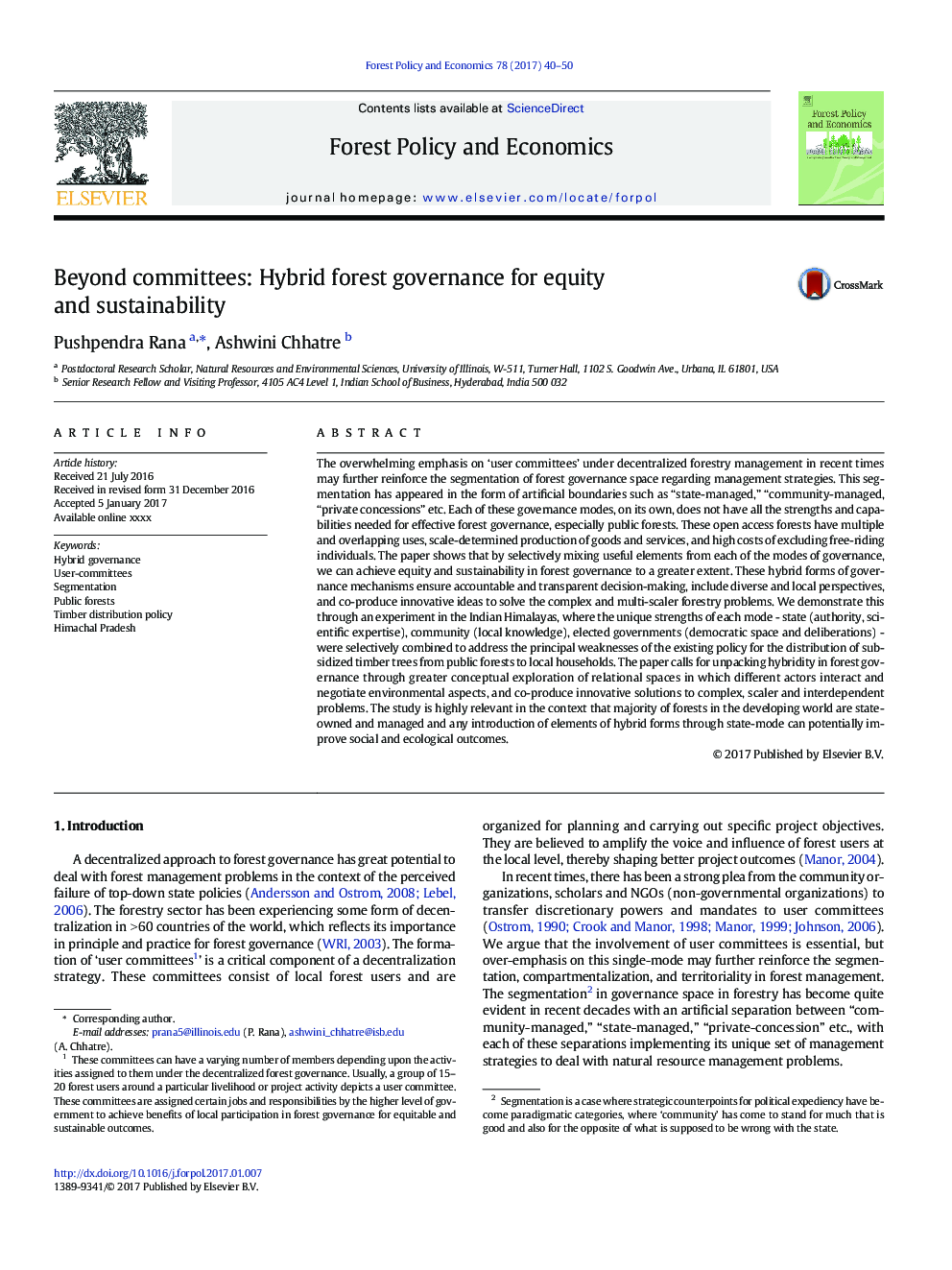| Article ID | Journal | Published Year | Pages | File Type |
|---|---|---|---|---|
| 4759766 | Forest Policy and Economics | 2017 | 11 Pages |
Abstract
The overwhelming emphasis on 'user committees' under decentralized forestry management in recent times may further reinforce the segmentation of forest governance space regarding management strategies. This segmentation has appeared in the form of artificial boundaries such as “state-managed,” “community-managed, “private concessions” etc. Each of these governance modes, on its own, does not have all the strengths and capabilities needed for effective forest governance, especially public forests. These open access forests have multiple and overlapping uses, scale-determined production of goods and services, and high costs of excluding free-riding individuals. The paper shows that by selectively mixing useful elements from each of the modes of governance, we can achieve equity and sustainability in forest governance to a greater extent. These hybrid forms of governance mechanisms ensure accountable and transparent decision-making, include diverse and local perspectives, and co-produce innovative ideas to solve the complex and multi-scaler forestry problems. We demonstrate this through an experiment in the Indian Himalayas, where the unique strengths of each mode - state (authority, scientific expertise), community (local knowledge), elected governments (democratic space and deliberations) - were selectively combined to address the principal weaknesses of the existing policy for the distribution of subsidized timber trees from public forests to local households. The paper calls for unpacking hybridity in forest governance through greater conceptual exploration of relational spaces in which different actors interact and negotiate environmental aspects, and co-produce innovative solutions to complex, scaler and interdependent problems. The study is highly relevant in the context that majority of forests in the developing world are state-owned and managed and any introduction of elements of hybrid forms through state-mode can potentially improve social and ecological outcomes.
Related Topics
Life Sciences
Agricultural and Biological Sciences
Forestry
Authors
Pushpendra Rana, Ashwini Chhatre,
